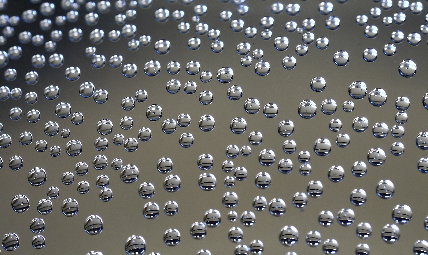Sphere Fluidics was formed in early 2010 and aims to commercialise picolitre droplet technology to enable researchers to carry out large numbers of simultaneous reactions contained within aqueous droplets a fraction of a millilitre in volume.
Although recent advances in robotics and high-speed computers have made high-throughput screening of biological reactions feasible, these systems are still limited to the use of multi-well plates. In some cases researchers are still tied to manual measurements and procedures, limiting speed, accuracy and reliability.
While high-throughput analytical systems allow the rapid generation of thousands of experimental data points, Professors Chris Abell and Wilhelm Huck of the Department of Chemistry have developed the next generation of ultra high-throughput automated screening systems. The platform is an alternative to existing techniques and promises to increase the rate of analyses 100 fold, while improving both accuracy and reliability, offering greater control and automation, and improved efficiency.
The technology allows vast numbers of parallel experiments to be carried out simultaneously, allowing total control of the reaction environment. Droplets, each containing single molecules, cells or organisms, can be generated at a rate of tens of thousands per second. When the droplets are merged with others containing, for example, a specific chemical reagent, they act as miniature reaction chambers each one with a unique set of experimental conditions.The technology has potential uses across a wide variety of fields, including drug discovery and algal biofuel development.
Dr Frank Craig has been recruited as CEO, and the investment from the Discovery Fund will support the new company as it searches for its first clients and seeks additional funding, with the objective of being self-sustaining within 12 months. The company has recently won investment from the Royal Society Enterprise Fund and a research partnership with a top tier pharmaceutical firm.




